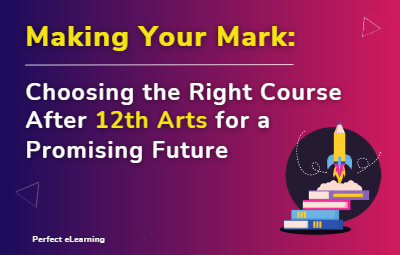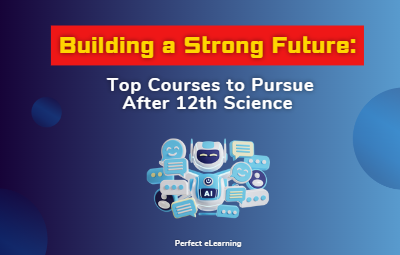

Are you a 12th grade Arts student wondering about the best course to pursue after completing your high school education? The choice you make now can significantly impact your future and career prospects.
Exploring Various Career Options
1. Studying Humanities and Social Sciences
Humanities and Social Sciences encompass a wide range of subjects, including sociology, psychology, political science, anthropology, and more. By pursuing courses in these fields, you can develop a deep understanding of human behavior, society, and culture. A degree in these disciplines can lead to fulfilling careers in research, social work, public policy, and human resources.
2. Pursuing Fine Arts and Design
If you have a passion for creativity and aesthetics, consider pursuing courses in Fine Arts and Design. These programs offer comprehensive training in disciplines like painting, sculpture, graphic design, fashion design, and interior design. With the rise of the creative industry, there are numerous career opportunities in advertising agencies, design studios, fashion houses, and art galleries.
3. Opting for Performing Arts
For those with a flair for the dramatic or a love for music, a career in performing arts might be the perfect choice. Performing arts courses cover areas such as theater, dance, music, and film. By honing your skills in these fields, you can pursue careers as actors, dancers, musicians, directors, or even work behind the scenes in production and stage management.
4. Exploring Language and Literature
For those who have a love for literature, language, and creative writing, there are numerous courses available in this domain. These programs provide a deep understanding of literature, linguistics, and creative writing techniques. Graduates can find careers as authors, editors, content writers, translators, or work in publishing houses and media organizations.
Factors to Consider When Choosing a Course
While exploring various career options, it's essential to consider several factors that can help you make an informed decision:
1. Personal Interests and Passions: Choose a course that aligns with your interests and passions to ensure long-term satisfaction and motivation.
2. Future Job Prospects: Research the job market and evaluate the demand for professionals in your chosen field.
3. Job Market Demand: Consider the demand for specific skills in the job market and choose a course that offers good career prospects.
4. Skills and Aptitude: Assess your skills and aptitude to determine if they match the requirements of your desired course.
5. Course Curriculum and Institution Reputation: Research the curriculum of the courses you are interested in and the reputation of the institutions offering them.
Exploring Hybrid Career Options
In today's fast-paced world, many careers require a combination of skills from different disciplines. Consider exploring interdisciplinary courses that blend arts with technology, business, or other fields. These hybrid courses can provide you with a unique skill set and open doors to diverse career opportunities. For example, courses like multimedia design, digital marketing, or arts entrepreneurship can help you carve out a niche in the industry.
Importance of Internships and Practical Experience
While theoretical knowledge is essential, practical experience is equally valuable in the job market. Look for opportunities to gain hands-on experience through internships, part-time jobs, or volunteering. Practical experience not only enhances your skills but also helps you build a professional network, which can be crucial for future job prospects.
Seeking Guidance from Career Counselors and Professionals
Choosing the right course after 12th Arts can be challenging, but you don't have to navigate this decision alone. Seek guidance from career counselors who can provide personalized advice based on your interests and goals. Additionally, reach out to professionals working in the fields you are considering. Their insights and experiences can offer valuable perspectives and help you make an informed choice.
Conclusion
Choosing the right course after 12th Arts is a crucial step towards building a promising future. Consider your interests, future job prospects, and personal aptitude when making this decision. Explore various career options, including humanities, fine arts, performing arts, journalism, and language/literature. Additionally, stay open to hybrid career options that combine arts with other disciplines. Seek guidance from career counselors and professionals, and remember that internships and practical experience can significantly enhance your career prospects. Make an informed decision and embark on a path that allows you to make your mark in the world.
Frequently Asked Questions (FAQs)
Q: How do I know which course is right for me after 12th Arts?
A: Choosing the right course involves assessing your personal interests, future job prospects, and skills. Consider your passions and aptitude, research different career options, and seek guidance from career counselors to make an informed decision.
Q: Can I switch to a different course if I realize I made the wrong choice?
A: In many cases, it is possible to switch courses if you realize your initial choice wasn't the right fit. However, it's essential to consider the implications of such a decision, including time, finances, and academic requirements. Consult with academic advisors to understand the process and make an informed decision.
Q: Are there any scholarships available for arts students?
A: Yes, there are scholarships available for arts students based on merit, talent, and financial need. Research scholarship opportunities offered by educational institutions, foundations, and government organizations to explore funding options for your chosen course.
Q: What are the future job prospects for arts graduates?
A: The job prospects for arts graduates vary depending on the chosen field. Careers in humanities, fine arts, performing arts, journalism, and language/literature offer a wide range of opportunities in research, creative industries, media, education, and more. It's important to research the specific field you're interested in to understand its job market and trends.


